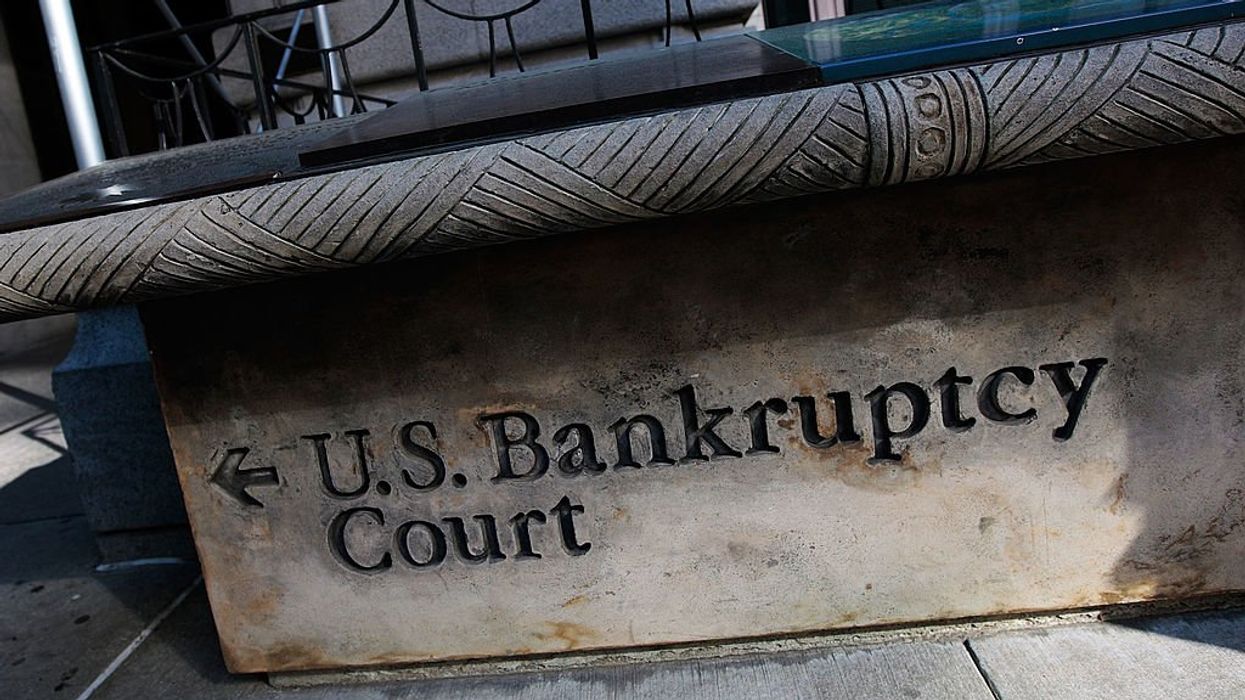Can you remember the economic crisis of 2008 and how you felt when the news broke that Lehman Brothers had collapsed? I have found an economic threat that everyone needs to be aware of, so you can prepare yourself in case we see another 2008 type collapse. I am going to present the evidence to you and I urge you to verify everything and to form your own opinion.
What is that threat?
It is a bank called Deutsche Bank. They are by far the most dominant bank in Germany which is the world's fourth-largest economy. In 2018 they had €2.08 Trillion worth of assets and the second-placed bank (DZ Bank) had
€506 Billion worth of assets. To show you how dominant this bank is, they have more assets than the 2nd, 3rd, 4th, 5th and 6th sized banks combined.
When we review a business there are three key parts to analysis:
- Market sentiment
- Business numbers
- Technical Analysis
Market Sentiment
Deutsche Bank has a long history of potential scandals including going all the way back to World War 2 and dealing in Nazi gold. Below are five recent stories which have increased the negative sentiment around Deutsche Bank.
- In 2007, they purchased a portfolio of loans worth $7.8 billion and purchased insurance from Warren Buffets Company. It was discovered they did not set aside enough capital to cover any potential losses. Over the course of the ten years, they lost $1.6 billion, and when they sold the loan they did not update their financial statements to include the big loss
- The Panama Papers are an ongoing investigation looking for many things including offshore tax havens. These investigations have resulted in several heads of state resigning including in Iceland and Pakistan. Last November, 170 police raided 6 different offices in Frankfurt looking for evidence of money laundering.
- Estonia is a small country in Eastern Europe. It has a population of 1.3 million people and a GDP of €26 billion. In January, it was discovered Deutsche Bank got involved with a Danish bank called Danke Bank and processed over $230 billion worth of cross country payments (including from Soviet Russia) through one bank in Estonia.
- There have been rumors of issues with Deutsche for a while now and one of the solutions put forth was a merger with a bank called CommerzBank. The leaders of both companies met and they even got support from politicians. In April, news broke that the merger talks had failed because over worries the risks and costs would be too great.
- Last week in France, Investment banking boss Garth Ritchie and others were arrested in France over illicit tax transactions.
Business Numbers
Deutsche Bank is already struggling as they are losing staff, losing market share, and bonuses are expected to be down at least 10% and further rounds of cost-cutting to come. Now imagine the impact if business costs start going up.
The banking industry works in a very simple way. They raise funds through large bonds at low-interest rates and then sell those funds to business and individuals thru products like loans and credit cards at a higher interest rate which results in a potential profit.
Earlier this year, Deutsche Bank tried raising money through several bonds. They paid 180bp (basis points) on a two-year bond and 230bp on a seven-year bond. Let me put this in context for you. There is a small bank in Spain called Caixabank which paid 225bp on a five-year bond and one of the larger banks in Spain, BBVA paid 130bp on a five-year bond.
- How and why is a small bank in Spain getting a better deal on bonds than a huge bank in Germany?
- Why is a large bank in Spain getting a bond 100bp cheaper than a German bank?
- What does the market know that we do not?
Stock Price
Deutsche is also missing revenue projections which further hurt the business ability to survive and prosper. As you can imagine all of this news has a deep and lasting impact on its stock price which is in deep trouble. Before I share the stock price, I need to put this into the context of the market and the industry compared to the big economic crash of 2008. Below you will see a chart of some banking stocks from around the world with their peak price prior to the 2008 crash, the low of the 2008 recession and the price today:
As you can see from the above chart the banks in America have recovered from the 2008 recession by anywhere up 375% and JP Morgan has not only recovered its price in full but is constantly setting new high's. Ireland went bankrupt and had to be bailed out by the EU/IMF following the 2008 crash and even our national bank has more than doubled its price since 2008. The worst performing bank I could find was Societe Generale which has issues but is still hovering around its 2008 low price levels.
Now let's put that into the context of Deutsche Bank. Not only has the stock not rebounded but it is over 65% below its 2008 low at $6.75.
Technical Analysis
When you are dealing with the stock market, you also have people who study pricing through technical analysis. Experts look at things like FIB sequences, trend lines, and support levels. Support levels are a key metric for a stock failing because are looking to find where it will find support and potentially bounce higher.
We are very close to a key support level ($6.40) and if the price goes below this level, there is no saying exactly how low the price could go. At least one company expects Deutsche to fall below this support level, as several weeks ago UBS downgraded the stock to a sell order. This news was compounded last Friday when rating agency Fitch, downgraded their credit rating to BBB or two levels above JUNK status.
Other Information
I know you are likely reading this and thinking "this bank must have smart people in charge and surely they have a plan, right?" I am sure there is a plan and while they have kept their cards close to their chest, they have spoken in the past about the areas they foresee having growth for the company – they include business in Saudi Arabia, UAE, and Egypt. Do they strike you as countries which are stable and will offer steady and reliable growth? Do you have to think really hard to imagine how this could go potentially very wrong?
Questions
I believe there is at least a solid case Deutsche is in a LOT of trouble. So what are possible scenarios for the future? I will lay out the key questions below but I must stress that it's impossible to say for sure what exactly will happen. One of the key numbers to remember here is they have roughly €50 billion worth of derivatives.
- How likely is it that the bank can turn things around and survive?
- How likely is it the bank continues to run into trouble, its stock price fails and eventually fails?
- If you think it is likely it will fail, the question becomes what will the fallout be? Who will be affected?
- Will they be bailed out?
- If so, by whom? The German government, ECB, IMF, the Federal Reserve?
- What will the German government think? Some members recently spoke out saying they would block public money for the proposed merger? Will they block funds if it failed?
- Will other banks be exposed and affected? Will they have to take losses?
- Will those losses be spread around or will one or more bank be mainly affect?
- Will this affect the sentiment of the banking sector and cause a panic?
- If there are issues and it starts affecting the stock prices, what will be the impact on other industries?
Last Question
The last question revolves solely around the banks and the regulators? How secure are the other banks? We all hear about how banks are now put through "stress tests" but how much trust do you put in those results? How much trust do you have in the regulators?
I know this may make me sound like a conspiracy theorist to some but it's an honest question. The Fed is on public record saying they want to keep this economy strong as long as possible. If a bank did not perform strongly in a stress test or even barely failed one, do you think they would report it?
Can you imagine the pressure that body would come under to stay silent? Can you imagine the rhetoric they would face with questions like, "Are you really going to fail one bank? Do you know how many people will lose their jobs if you do that?" Am I saying this is happening? No, but can you really rule it out 100% as a possibility?
I urge you to ponder on these questions, do your own research and find YOUR answers.
Update: The most freaquently asked question I have received from this column / show is how much time do we have to prepare. This is an impossible question to answer, as it could fail tomorrow, next week or might be next year. However I want to provide you a potential date for your diary – July 24th. That is when Deutsche will release their next earnings report and if it comes in below expectations, it could cause a further drop in price casting more doubt over the future viability of the bank.


















